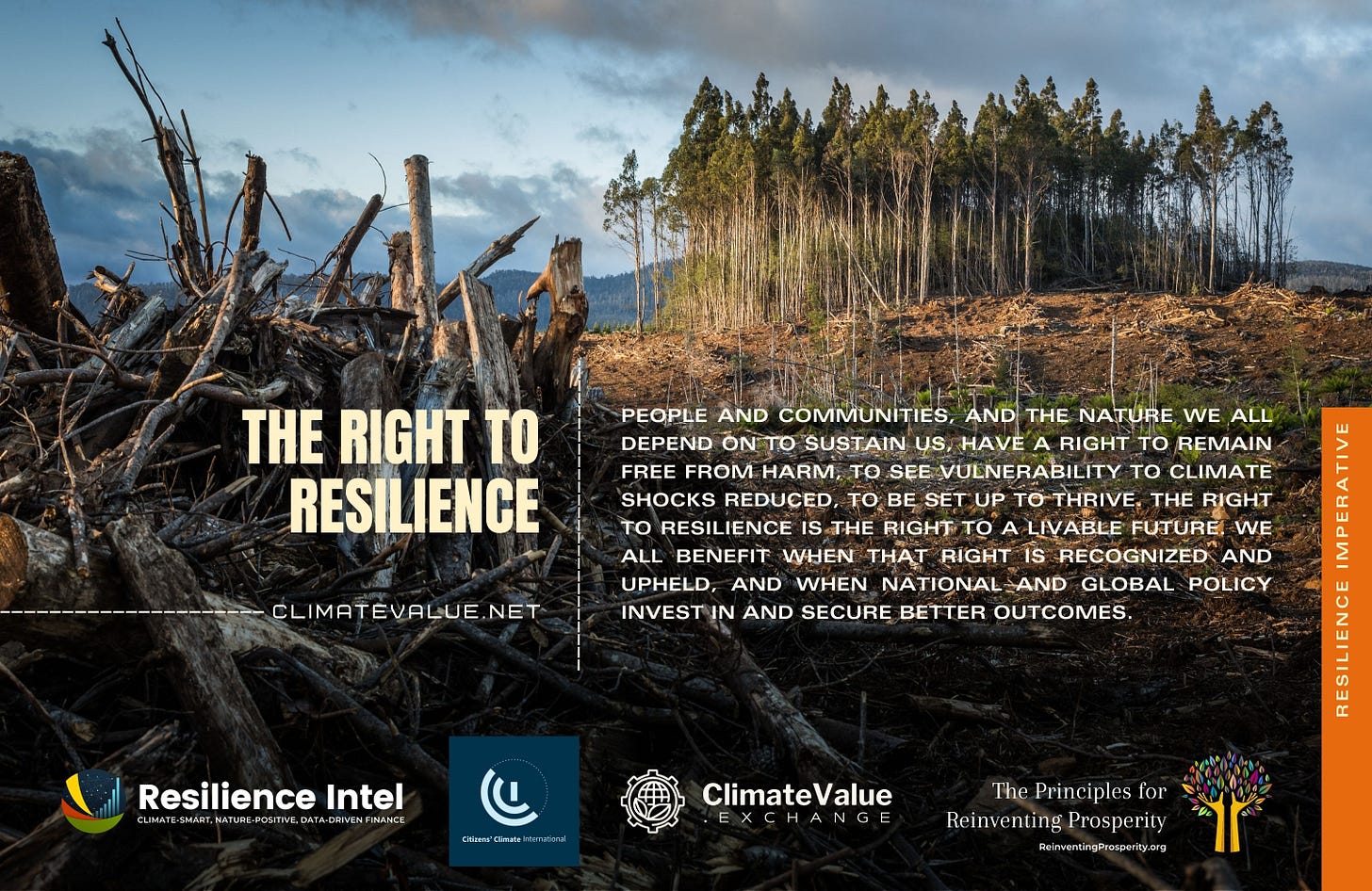Main Street geopolitics can make the future work for everyone
The climate system is a geophysical fabric of ethical entanglement that makes our metaphysical interrelationship into physical reality. The climate system connects upstream and downstream actors across sectors, interests, and regions.
Watersheds define upstream actors as those where waterways flow away toward downstream actors. The climate system, however, makes those same upstream actors in a watershed into downstream stakeholders that experience transformative change to natural life-support systems, resulting from activities of others, elsewhere.
In 1992, nearly 200 countries agreed to work together to "prevent dangerous anthropogenic (human-caused) interference with the climate system". As we enter the year 2024, we are already living the dangerous impacts of human-caused climate change, in every region. People in all regions are both upstream actors and downstream stakeholders in this global energy exchange.
In December, the 197 Parties to the 1992 Climate Convention (196 nations, plus the European Union) agreed to "transition away from fossil fuels". The agreement also included a number of loopholes that suggest vast new investments in fossil fuel infrastructure might follow.
Legal language must be coherent in terms of both practical effects and moral imperatives. When we read the full outcome of the COP28 negotiations, the UAE Consensus, it is clear that the loopholes can be little more, in legal terms, than wishes contingent upon implementation of the transition with maximum speed and spread.
The UAE Consensus also commits to "ensure the integrity of all ecosystems", including the cryosphere;
it commits to climate justice, adaptation and resilience investments, and a just transition;
it commits to honor obligations to human rights, including the right to health and to a clean, healthy environment;
it commits all Parties to upgrade national climate plans, act to curb methane and all other GHGs;
and, to reach net-zero global heating emissions in line with science, which finds the Covnention mandate of avoiding danger requires global heating of no more than 1.5C.
All of this taken together means every economy in the world needs to start evolving toward investable climate value on the shortest timeline possible. This means we need to start identifying the hidden value investments in climate-resilient development and industry, across all sectors, right away.
Doing so will allow us to build local economies that build value by supporting responsible climate leadership in the global context, capturing transition investment and embodying the just transition to a climate value economy. If properly and expeditiously implemented, this agreement to transition away from fossil fuels will bring about a new age of Main Street geopolitics.
Transformative investment and climate-resilient development informed by the geophysical reality of our ethical entanglement can make lives at the community level more vibrant, prosperous, humane, and secure. Geopolitics should be a way of making the Main Street experience healthier, more liberated, more innovative, and more prosperous.
To advance the complex technical work required to transition to a humane, just, inclusive, and durable climate value economy, Geoversiv is joining with Citizens' Climate International and other partners, to support the Climate Value Exchange.
The Climate Value Exchange is a new multi-stakeholder partnership, which aims to connect disparate and overlapping coalitions, public and private-sector institutions, and science and knowledge producers, to maximize the opportunities inherent in another commitment made in Dubai: to advance non-market multilateral cooperative arrangements, in line with Article 6.8 of the Paris Agreement. Doing so will make it possible to shift to climate-resilient trade, align financial flows with a climate-safe future, as called for in Article 2 of the Paris Agreement, and leverage the Global Goal on Adaptation to reduce harm and risk and maximize benefits for all.
Geoversiv makes this commitment at the start of 2024 not to the exclusion of other urgent priorities at the human scale and between countries. We are investing our time, talent, and network in the Climate Value Exchange, because worsening climate destabilization will make all of those other urgent priorities harder to achieve.
The climate value economy can be, and must be, an engine for integral human development, durable peace, and shared security and prosperity. It is no mistake that we see human rights listed as overriding principles in the consensus commitment to transition to a climate value economy. We look ahead to 2024 being the year we start to concretely integrate human rights with development, finance, and trade priorities.
Science now shows that we are, in fact, stewards of the Earth system. We have a duty to shoulder that responsibility with wisdom, with ethical insight, and for the benefit of all. Now, we must accelerate, everywhere, the work of securing a vibrant, healthy, cooperative future of enduring climate value.



